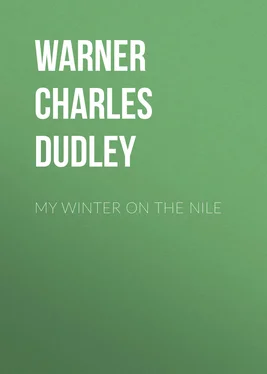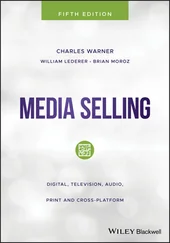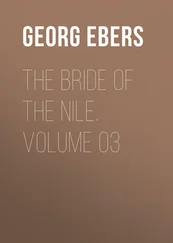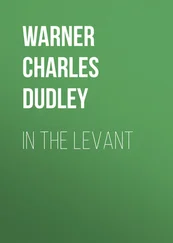Charles Warner - My Winter on the Nile
Здесь есть возможность читать онлайн «Charles Warner - My Winter on the Nile» — ознакомительный отрывок электронной книги совершенно бесплатно, а после прочтения отрывка купить полную версию. В некоторых случаях можно слушать аудио, скачать через торрент в формате fb2 и присутствует краткое содержание. Жанр: Путешествия и география, История, foreign_edu, foreign_antique, foreign_prose, на английском языке. Описание произведения, (предисловие) а так же отзывы посетителей доступны на портале библиотеки ЛибКат.
- Название:My Winter on the Nile
- Автор:
- Жанр:
- Год:неизвестен
- ISBN:нет данных
- Рейтинг книги:5 / 5. Голосов: 1
-
Избранное:Добавить в избранное
- Отзывы:
-
Ваша оценка:
- 100
- 1
- 2
- 3
- 4
- 5
My Winter on the Nile: краткое содержание, описание и аннотация
Предлагаем к чтению аннотацию, описание, краткое содержание или предисловие (зависит от того, что написал сам автор книги «My Winter on the Nile»). Если вы не нашли необходимую информацию о книге — напишите в комментариях, мы постараемся отыскать её.
My Winter on the Nile — читать онлайн ознакомительный отрывок
Ниже представлен текст книги, разбитый по страницам. Система сохранения места последней прочитанной страницы, позволяет с удобством читать онлайн бесплатно книгу «My Winter on the Nile», без необходимости каждый раз заново искать на чём Вы остановились. Поставьте закладку, и сможете в любой момент перейти на страницу, на которой закончили чтение.
Интервал:
Закладка:
A little further on, by the river bank, opposite the southern end of the island of Rhoda, the Moslems show you the spot where little Moses lay in his little basket, when the daughter of Pharaoh came down to bathe (for Pharaoh hadn’t a bath-tub in his house) and espied him. The women of the Nile do to-day exactly what Pharaoh’s daughter and her maidens did, but there are no bulrushes at this place now, and no lad of the promise of Moses is afloat.
One can never have done with an exploration of Cairo, with digging down into the strata of overlying civilizations, or studying the shifting surface of its Oriental life. Here, in this Old Cairo, was an ancient Egyptian town no doubt; the Romans constructed here massive walls and towers; the followers of St. Mark erected churches; the friends of Mohammed built mosques; and here the mongrel subjects of the Khedive, a mixture of ancient Egyptian, conquering Arabian, subject Nubian, enslaved Soudan, inheritors of all civilizations and appropriators of none, kennel amid these historic ash-heaps, caring neither for their past nor their future. But it is drawing towards the middle of December; there are signs that warn us to be off to the south. It may rain. There are symptoms of chill in the air, especially at night, and the hotel, unwarmed, is cheerless as a barn, when the sun does not shine. Indeed, give Cairo the climate of London in November and everybody would perish in a week. Our preparations drift along. It is always “tomorrow.” It requires a week to get the new name of the boat printed on a tin. The first day the bargain for it is made; the work is to be finished bookra , tomorrow. Next day the letters are studied. The next the tin is prepared. The next day is Friday or Wednesday or some other day in which repose is required. And the next the workman comes to know what letters the howadji desires to have upon the tin, and how big a sign is required.
Two other necessary articles remain to be procured; rockets and other fire-works to illuminate benighted Egypt, and medicines. As we were not taking along a physician and should find none of those experimenting people on the Nile, I did not see the use of carrying drugs. Besides we were going into the one really salubrious region of the globe. But everybody takes medicines; you must carry medicines. The guide-book gives you a list of absolutely essential, nasty drugs and compounds, more than you would need if you were staying at home in an artificial society, with nothing to do but take them, and a physician in every street.
I bought chunks of drugs, bottles of poisons, bundles of foul smells and bitter tastes. And then they told me that I needed balances to weigh them in. This was too much. I was willing to take along an apothecary’s shop on this pleasure excursion; I was not willing to become an apothecary. No, I said, if I am to feed out these nauseous things on the Nile, I will do it generously, according to taste, and like a physician, never stinting the quantity. I would never be mean about giving medicine to other people. And it is not difficult to get up a reputation for generosity on epsom salts, rhubarb and castor oil.
We carried all these drugs on the entreaty of friends and the druggist, who said it would be very unsafe to venture so far without them. But I am glad we had them with us. The knowledge that we had them was a great comfort. To be sure we never experienced a day’s illness, and brought them all back, except some doses that I was able to work off upon the crew. There was a gentle black boy, who had been stolen young out of Soudan, to whom it was a pleasure to give the most disagreeable mixtures; he absorbed enormous doses as a lily drinks dew, and they never seemed to harm him. The aboriginal man, whose constitution is not weakened by civilization, can stand a great amount of doctor’s stuff. The Nile voyager is earnestly advised to carry a load of drugs with him; but I think we rather overdid the business in castor-oil; for the fact is that the people in Nubia fairly swim in it, and you can cut the cane and suck it whenever you feel like it.
By all means, go drugged on your pleasure voyage. It is such a cheerful prelude to it, to read that you will need blue-pills, calomel, rhubarb, Dover’s powder, James’s powder, carbolic acid, laudanum, quinine, sulphuric acid, sulphate of zinc, nitrate of silver, ipecacuanha, and blistering plaster. A few simple directions go with these. If you feel a little unwell, take a few blue pills, only about as many as you can hold in your hand; follow these with a little Dover’s powder, and then repeat, if you feel worse, as you probably will; when you rally, take a few swallows of castor-oil, and drop into your throat some laudanum; and then, if you are alive, drink a dram of sulphuric acid. The consulting friends then generally add a little rice-water and a teaspoonful of brandy.
In the opinion of our dragoman it is scarcely reputable to go up the Nile without a store of rockets and other pyrotechnics. Abd-el-Atti should have been born in America. He would enjoy a life that was a continual Fourth of July. He would like his pathway to be illuminated with lights, blue, red, and green, and to blaze with rockets. The supreme moment of his life is when he feels the rocket-stick tearing out of his hand. The common fire-works in the Mooskee he despised; nothing would do but the government-made, which are very good. The passion of some of the Egyptians for fire-arms and gunpowder is partially due to the prohibition. The government strictly forbids the use of guns and pistols and interdicts the importation or selling of powder. On the river a little powder and shot are more valued than money.
We had obtained permission to order some rockets manufactured at the government works, and in due time we went with Abd-el-Atti to the bureau at the citadel to pay for them. The process was attended with all that deliberation which renders life so long and valuable in the East.
We climbed some littered and dusty steps, to a roof terrace upon which opened several apartments, brick and stucco chambers with cement floors, the walls whitewashed, but yellow with time and streaked with dirt. These were government offices, but office furniture was scarce. Men and boys in dilapidated gowns were sitting about on their heels smoking. One of them got up and led the way, and pulling aside a soiled curtain showed us into the presence of a bey, a handsomely dressed Turk, with two gold chains about his neck, squatting on a ragged old divan at one end of the little room; and this divan was absolutely all the furniture that this cheerless closet, which had one window obscured with dust, contained. Two or three officers were waiting to get the bey’s signature to papers, and a heap of documents lay beside him, with an inkhorn, on the cushions. Half-clad attendants or petitioners shuffled in and out of the presence of this head of the bureau. Abd-el-Atti produced his papers, but they were not satisfactory, and we were sent elsewhere.
Passing through one shabby room after another, we came into one dimmer, more stained and littered than the others. About the sides of the room upon low divans sat, cross-legged, the clerks. Before each was a shabby wooden desk which served no purpose, however, but to hold piles of equally shabby account books. The windows were thick with dust, the floor was dirty, the desks, books, and clerks were dirty. But the clerks were evidently good fellows, just like those in all government offices—nothing to do and not pay enough to make them uneasy to be rich. They rolled cigarettes and smoked continually; one or two of them were casting up columns of figures, holding the sheet of paper in the left hand and calling each figure in a loud voice (as if a little doubtful whether the figure would respond to that name); and some of them wrote a little, by way of variety. When they wrote the thin sheet of paper was held in the left hand and the writing done upon the palm (as the Arabs always write); the pen used was a blunt reed and the ink about as thick as tar. The writing resulting from these unfavorable conditions is generally handsome.
Читать дальшеИнтервал:
Закладка:
Похожие книги на «My Winter on the Nile»
Представляем Вашему вниманию похожие книги на «My Winter on the Nile» списком для выбора. Мы отобрали схожую по названию и смыслу литературу в надежде предоставить читателям больше вариантов отыскать новые, интересные, ещё непрочитанные произведения.
Обсуждение, отзывы о книге «My Winter on the Nile» и просто собственные мнения читателей. Оставьте ваши комментарии, напишите, что Вы думаете о произведении, его смысле или главных героях. Укажите что конкретно понравилось, а что нет, и почему Вы так считаете.












